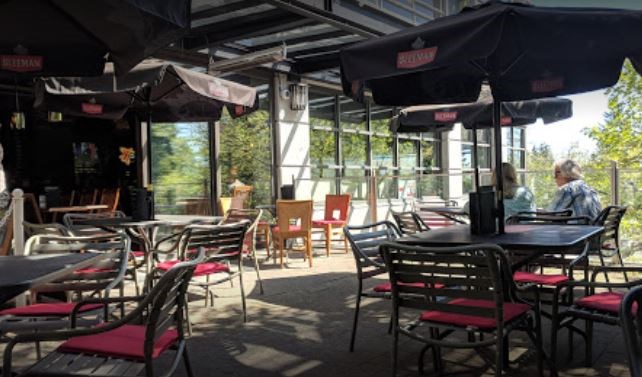Many industries have been savaged by the impacts of COVID-19, including restaurants.
The city has seen several eateries close and then reopen only to close permanently due to substantial losses.
One such place in Burnaby was Club Ilia, located in the UniverCity development next to Simon Fraser University.
It has been closed permanently and replaced by a new outlet, BierCraft. This has left some real devastation in its wake.
Club Ilia owner Fred Soofi told SFU’s newspaper The Peak in this article that he had spent nearly $1 million just to open the restaurant. That figure went up as the restaurant stayed closed for multiple months while still paying the rent.
Businesses in the UniverCity area have suffered mightily due to SFU’s campus being mainly closed to students. Many students didn’t move into the area because they were doing classes online.
The Study, a pub located right on campus, has been closed for a year and it’s unclear if it will ever reopen.
Now restaurant operators are calling the threat of a third wave of COVID-19 a "do-or-die moment" for the food service industry as it faces another potential round of restrictions.
Health officials across the country are warning of rising infections amid the increasing prevalence of novel coronavirus variants.
For some restaurants, another lockdown could force them to close their doors for good, said James Rilett, vice-president of Central Canada for Restaurants Canada.
"To open and close again, it costs about $30,000 for the average restaurant in lost product, lost shifts and things they have to pay for to get open, and lost investments once they close again," he said.
"If you haven't been open long enough to make up that money, then you're just getting further in the hole."
Canada has already lost more than 10,000 eateries since the introduction of pandemic lockdowns and more could follow if a third wave prompts renewed lockdowns, the industry group has said.
"We've been locked down longer than we've been open," said Erin Gamelin, owner of Toronto pubs Louis Cifer Brew Works on Danforth Ave. and Stout Irish Pub in Cabbagetown.
"We've been closed on St. Patrick's Day for two years in a row and our Cabbagetown location is only open to keep our key staff members employed."
The restaurant industry has been "vilified" by governments, she said, which drives customers away even when they're open.
"If they allow us to reopen but tell people to stay home because it's not safe then we're dead in the water," Gamelin said.
Her concerns are echoed by Scot McTaggart, the owner and operator of Fusion Grill in Winnipeg, who said opening and closing his restaurant takes a huge toll.
He said he'd have to "dig deep" to decide whether or not to stay in business if a new lockdown is introduced.
"It would be a do-or-die moment," McTaggart said. "I would have to take a serious look at how hard I've worked over the last year to barely break even and decide whether I want to cash in another RRSP or just call it quits."
The restaurateur said his sales are down 60 to 80 per cent, but he's working 60 to 80 per cent more, even becoming a delivery driver for his upscale eatery.
Despite the promise of the coming patio season and ongoing vaccine rollout, he said many restaurant operators are exhausted after a year of struggling to stay afloat.
"We're surviving but there's an increasing weariness that's starting to show," McTaggart said. "If there's a third wave, the question isn't can you survive but do you want to."
Yet it's not just the financial or "hard costs" of lost inventory, he said.
"The biggest and most substantial cost is losing staff," McTaggart said. "Our industry is losing valuable players, we're seeing skilled people leave and that brain trust is gone."
Meanwhile, he said the weeks and months following a lockdown are almost harder than the lockdown itself as the market slowly regains confidence.
Strict capacity restrictions, such as keeping occupancy at 25 per cent, and other rules such as in-person dining only among people from the same household has also created what he called a "purgatory."
- With files from the Canadian Press



